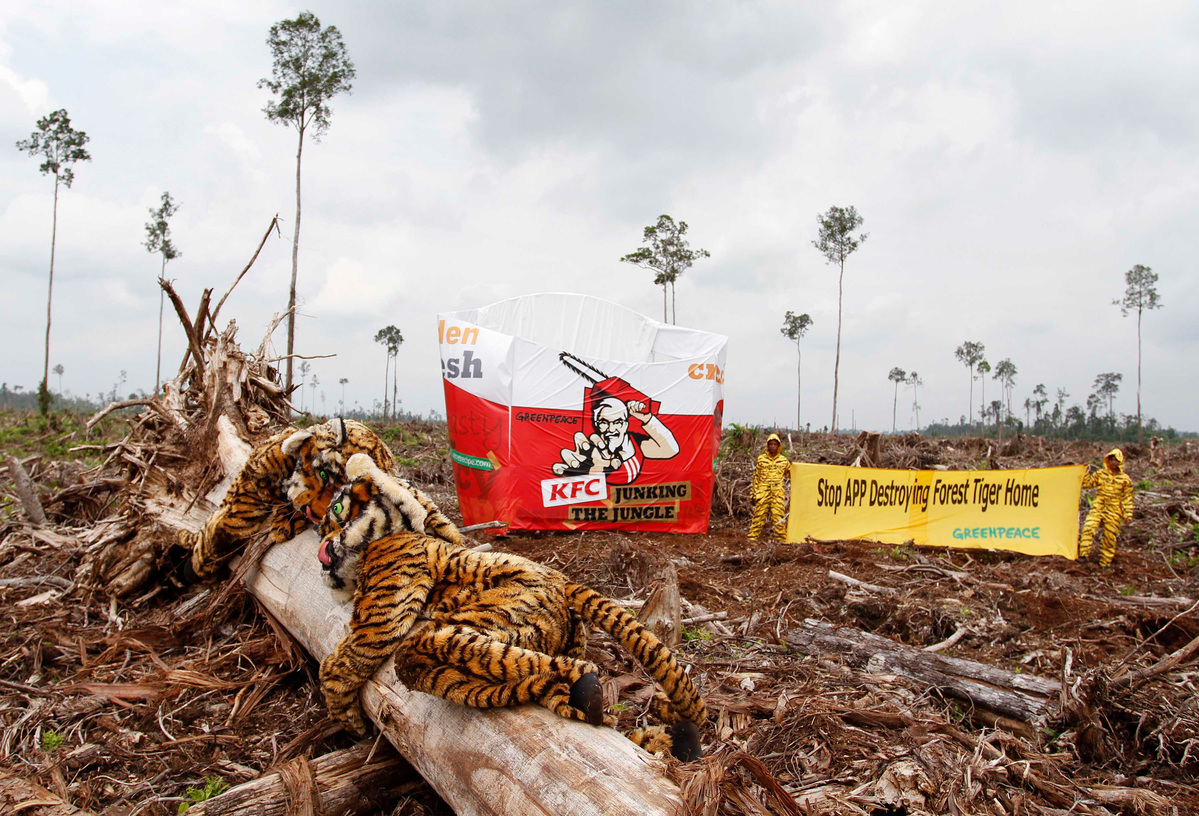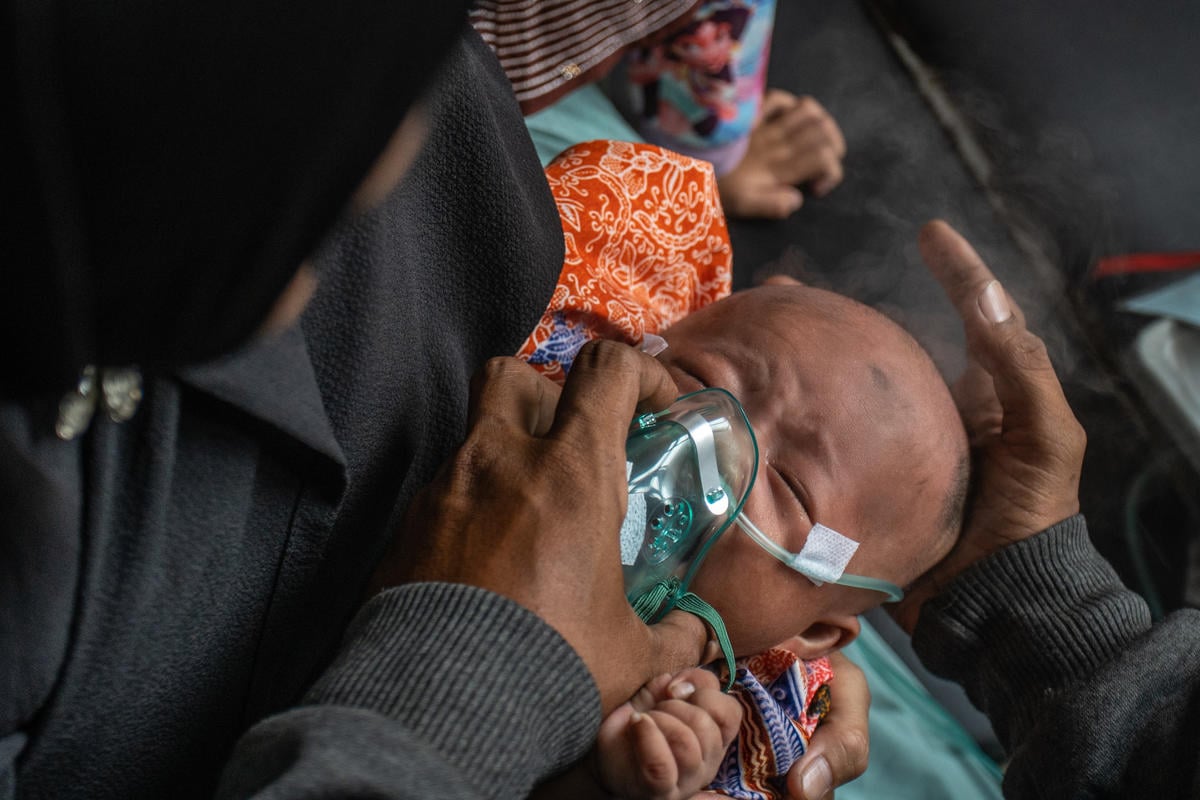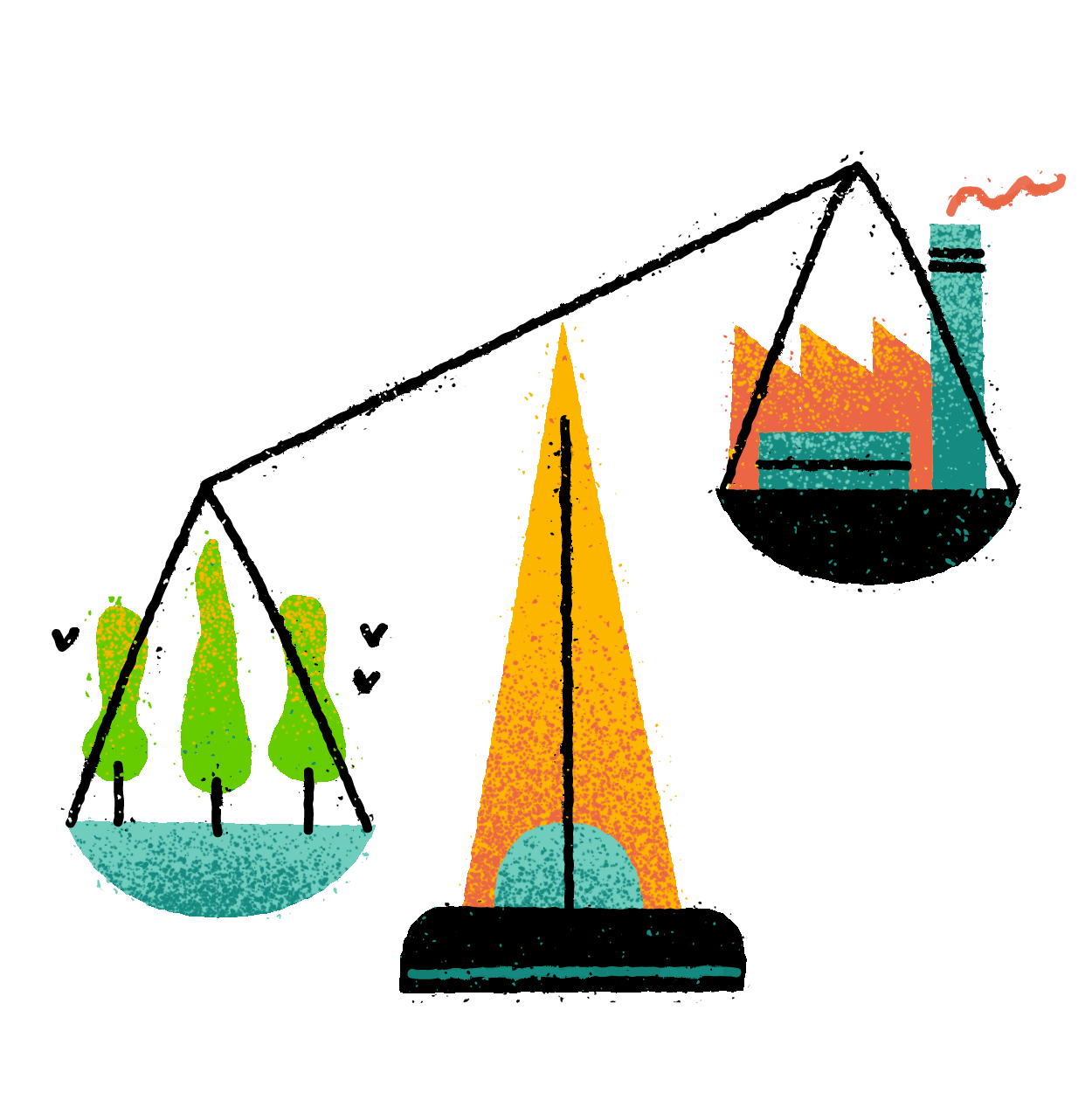In 2014, Thailand’s military government implemented a policy to reclaim forests to attract investments to develop the countryside. However, the people of Kham Pa Lai village in Mukdahan province in Northeastern Thailand were against the proposal, which included sandstone mining and wind turbine production projects that claim to be sustainable according to the government’s Bio-Circular-Green (BCG) economic and sustainability model. A total of 88 cases were filed from 2014 to 2020 to stop these projects.
While the men of the community had to work to provide for their families, the activism mainly fell on the women who were in charge of organizing meetings and protest activities. Their mission was to protect their ancestral land and reclaim their agricultural land rights.
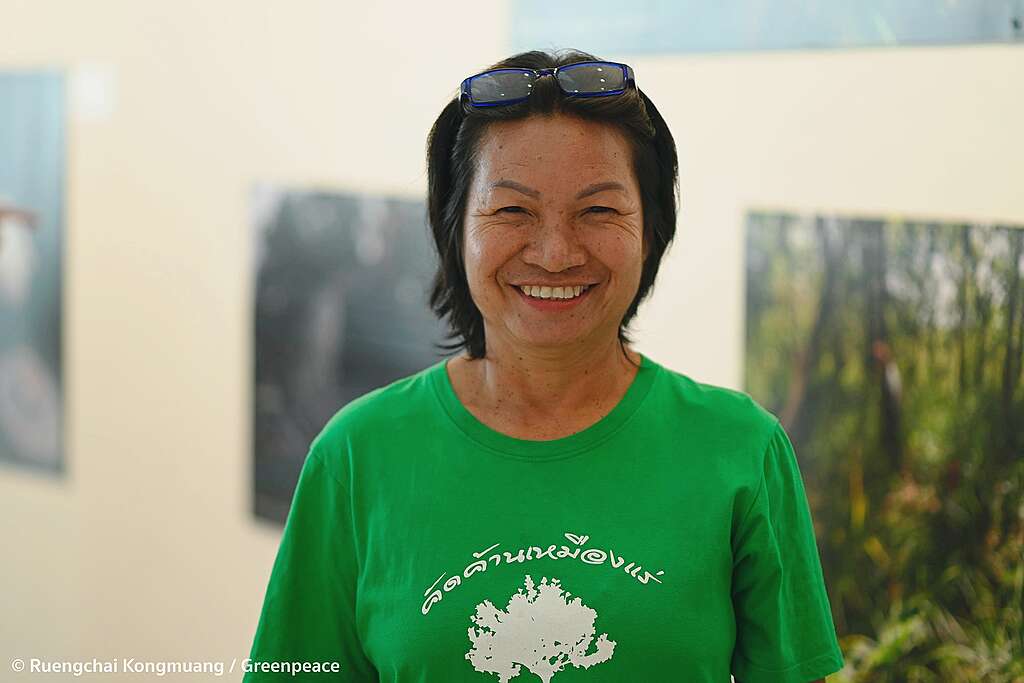
Samai Panthakote is a community leader and a human rights defender. Before joining the movement, she already lost over 19,200 square meters of agricultural land. In 2016, Thai government officials invaded her village with weapons, demolished buildings, and destroyed their valuable crops all in the name of reclamation. Additionally, the village chief banned the villagers from entering farming areas, and if caught were warned that they would not be able to get any help.
“We have struggled to protect our land since the government came to expel us in 2016. They planted forests over our land, preventing us from growing cassava. We turned to rice farming instead, but the income was not enough. Our land was taken away unfairly, so we contacted local government officials from other areas to ask for their support and oppose these actions. We have been holding more than a hundred protest gatherings each year.” she explained.
Samai has been actively fighting on behalf of the community for more than eight years now. Because of this, she has lost an estimated income of 264,000THB in total. Apart from personal financial loss, she also experienced a lot of stress and has had to sacrifice time that she could have otherwise spent caring for her family.
The BCG Model: An Opportunity for Greenwashing
Communities and indigenous groups in Thailand are facing new forms of land grabbing often disguised as good and green. One example is the Bio-Circular-Green economic model promoted by the Thai government in 2021. The government claims this model can solve the climate crisis and promote environmental sustainability. As a result, energy companies have been allowed to enter forest areas for green projects such as wind turbines, which unfortunately happens to be the cultivation area of the Kham Pa Lai community.
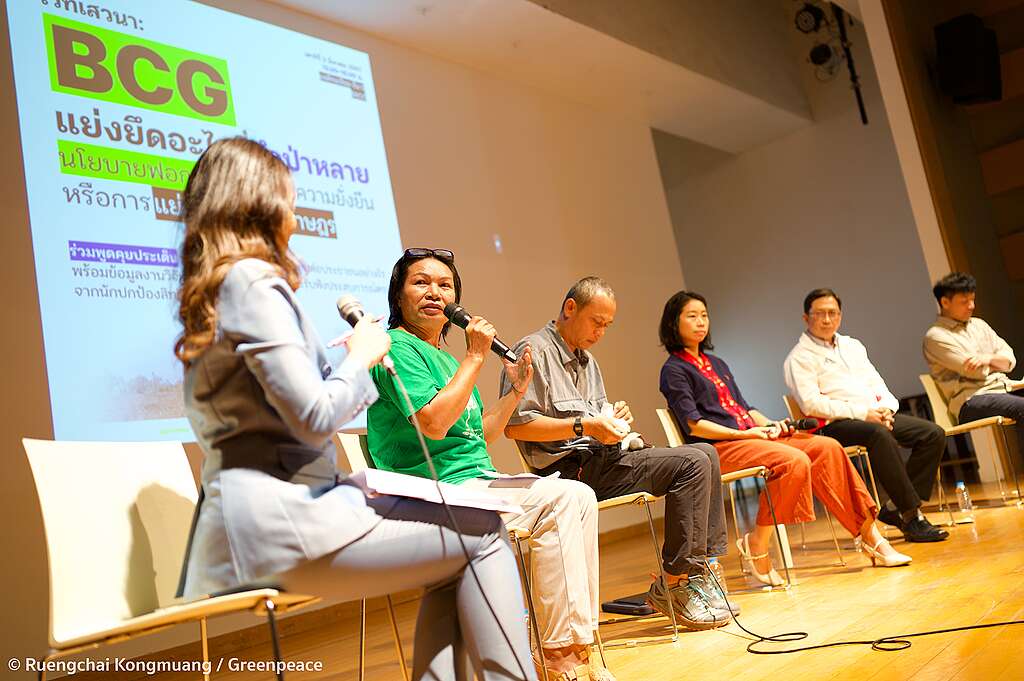
“They claim that the wind turbine project is good for carbon offsetting. But this area already has forests rich enough to store carbon. This lush forest is our home. We have enough water resources for many villages. There’s always enough food here, including red ant eggs and various vegetables. If they come and take over our land, how will we live?” Samai said.
The district chief reportedly said that wind turbine project would encroach on the community’s land. Samai and the Kham Pa Lai community believe that the state must listen to local voices especially if the villagers don’t agree, then project cannot be built. Unfortunately, the Forest Department still allowed the project to proceed.
Samai added that the government should carefully consider their actions, as taking away their land would not only cut off their income streams but also their way of life. “Our ancestors have lived in this area, and it feels like they are cutting off our lives,” she explained.
A Community’s Encouragement
According to Samai, the community’s appreciation and encouragement helped the women activists to continue fighting for their land rights.
“Even if other villagers did not lose a significant amount of land, they supported and stayed united with us who were affected. Several civil society networks also helped and encouraged us throughout this ordeal. Ultimately, the government needs to understand that people are facing difficulties. They need to restore our land rights- that’s the biggest help we need. So we ask the Thai public to support us in asserting our rights to reclaim our land.” Samai concludes.
Therawak Rungruengwirachkij is a Digital Campaigner for Greenpeace Thailand

